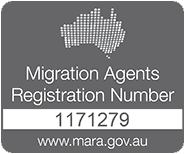If you’re like many people who are here temporarily in Australia, amidst worldwide country lock-downs due to COVID-19, you are probably wondering what will happen when your visa comes to an end.
This is a very concerning situation for many people. Particularly those on visitor visas and student visas. Many will have a condition called “No Further Stay”, or 8503, meaning that while in Australia, another visa cannot be applied for. Yet, most airlines are not flying, and more and more countries are closing their borders by the day. In short, non-Australians who are in Australia right now appear to be stuck.
Does this mean your status has to become ‘unlawful’?
No it doesn’t.
At the moment there is a lot of work being done in the Department of Home Affairs to put in place emergency and temporary measures. The Department is very aware of the situation that most people are in, and is also being informed by the Migration Institute of Australia (MIA) – the peak industry body representing Registered Migration Agents – in daily briefings. Through this channel, the MIA can take various situations to the Government for consideration. After all, the people who are encountering most of the clients with questions, are Registered Migration Agents.
Here are just a couple of measures that have so far been put in place, to alleviate the short term issues for onshore visa holders.
- Waiver of the ‘No Further Stay’ condition. In the case of “compelling reasons” which occurred after the person entered Australia, condition 8503 can be waived. A waiver of this condition leads to the possibility of another visa being lodged while the person is in Australia. Examples of the sorts of visas that could be lodged would include visitor visas, parent visas, partner visas, and possibly others. We know that the Department has allocated additional staff to the NFS Waiver Processing Team, and in many cases a decision can be reached within days.
- A “light touch” being applied to visitor visas. Normally, to obtain a visitor visa, a person needs to show, among other things, that they are a “genuine temporary entrant” and have sufficient funds for a visit, or genuine support from a family member. In the current environment the Department may apply a less rigid interpretation, when assessing onshore applications. Note that Integrity Measures are still important, but right now, it stands to reason that it would be easier to get an onshore visa, that it normally is.
There may of course be other visa options open to onshore applicants – for example, aged parent or sponsored temporary parent visas, partner visas, graduate visas, possibly even work visas. Each would be assessed on a case by case basis.
The Department is also urgently looking at ways it can help people who are here on temporary work visas, whose employment has ended, or who have been stood down, and now they are without a means of income or support. We will advise when more information comes to hand about this.
If you’re onshore holding a temporary visa, it’s important not to become unlawful, as that can lead to problems later on.
Please contact us if you, or a relative or friend, needs to discuss further visa options while you are onshore.





